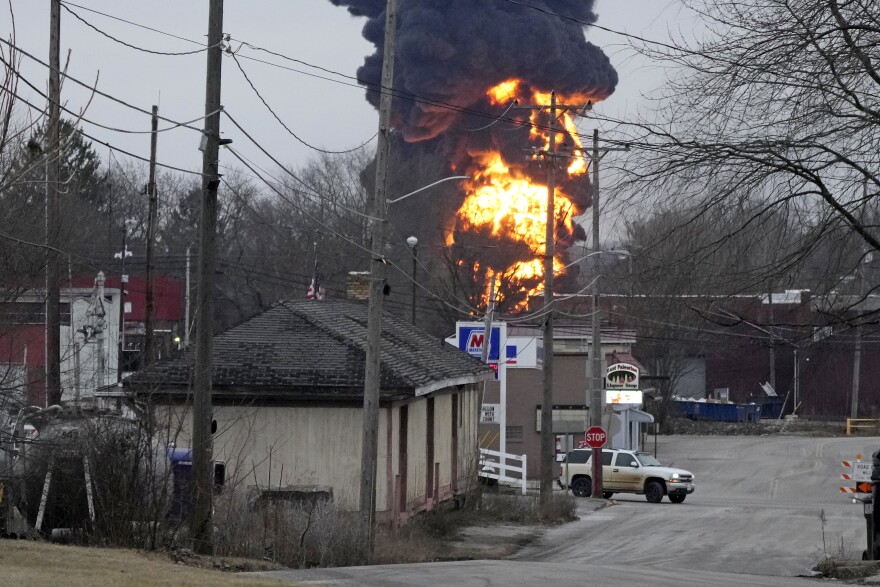An environmental advocacy group is criticizing the way the East Palestine train derailment was handled. The 50-car train derailed Friday night and required the area on the Ohio-Pennsylvania border to be evacuated.
Pennsylvania-based PennEnvironment has been calling for more transparency from freight rail companies for years. In 2015, it released a study, "Danger Around the Bend: The Threat of Oil Trains in Pennsylvania," that outlined the potential impact of oil train accidents on the health and safety of communities.
The risks of trains carrying explosive and toxic materials through communities is well known, Executive Director David Masur said.
“And yet you know, every day, we continue to let these trains rumble through our communities with very little information, very little emergency preparedness," Masur said.
Masur criticized how long it took for agencies to disclose what chemicals were on the derailed train. The train went off the tracks Friday night, but it wasn’t until Monday afternoon that agencies clarified the train was carrying the carcinogen vinyl chloride.
“When you have what the governor would call a catastrophic explosion being imminent, you need to know all of that, all of those details," Masur said.
Ohio Gov. Mike DeWine ordered an urgent evacuation for residents Sunday night, citing a potential explosion that might disperse deadly shrapnel.
Officials said they have been monitoring the air quality and haven't found anything of significance, but comments from first responders painted a confusing message, Masur said.
"You know you get sort of mixed messages when, you know, first responders, the mayors, you know, firefighters, are saying, 'We don't want to put our men and women in harm's way, not just from an explosion, but we don't know what's in the air that they're breathing,'" Masur said.
Masur called on state and federal governments to reroute trains carrying hazardous materials away from populated areas. Communities should know if and when toxic chemicals are being transported through their community, he said.
"In most cases that information isn't accessible, and I think, you know, we saw that a lot over the last two or three days, that, over and over again, there were first responders that were interviewed or making public statements about the fact that they really had no idea what they were dealing with," Masur said.
He said he hopes the accident will put into perspective how important more federal and state oversight of freight train companies are to protecting public health. He also said the country's rail infrastructure needs to be updated to prevent such accidents.






